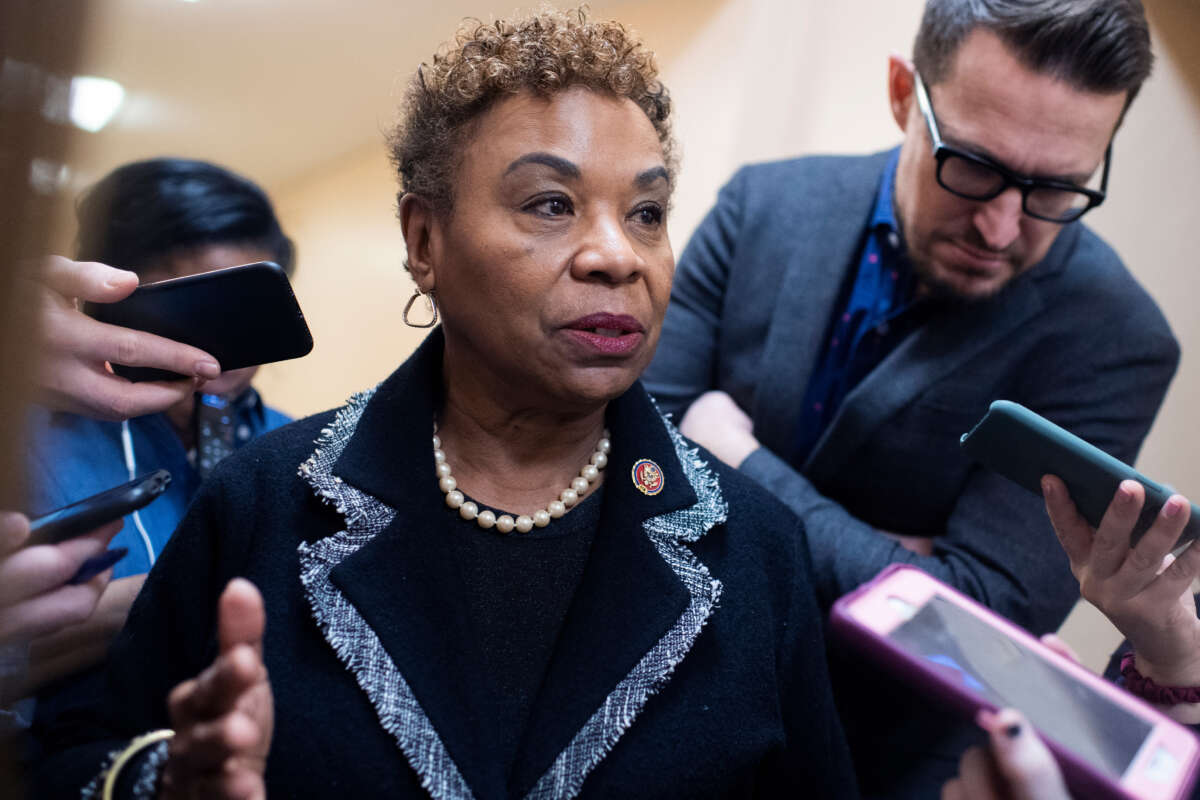Democratic Rep. Barbara Lee reportedly told fellow Congressional Black Caucus members in a private meeting on Wednesday that she will be running to replace California Democrat Sen. Dianne Feinstein in 2024.
Lee has not publicly announced a run, though sources informed Politico and NBC of her announcement. She later told reporters that she would officially announce her plans “when it’s appropriate,” though she has previously discussed a Senate run with Feinstein and California Gov. Gavin Newsom.
Her decision sets up a primary race against Rep. Katie Porter, who announced her Senate campaign on Tuesday, as well as other potential candidates like Rep. Ro Khanna and Rep. Adam Schiff, who has said that he is “exploring” the idea. Feinstein has not yet announced whether she is stepping down from her seat, though she is expected to do so, especially in light of reports on her declining cognitive health.
A race between Porter and Lee could be contentious. Both are prominent members of the Congressional Progressive Caucus (CPC), with Porter serving as the deputy chair of the group and Lee as the former co-chair. They also hold similar views on key litmus-test issues for progressives — both have cosponsored legislation for Medicare for All and the Green New Deal, for instance, placing them further to the left than Feinstein.
Feinstein is an establishment Democrat who not only opposes proposals like single payer health care and the Green New Deal, but has actively cast aspersions against these ideas; in 2019, after child climate activists asked her to support the Green New Deal, Feinstein brashly dismissed the young activists’ concerns. The video of the interaction became an infamous symbol of the establishment’s disinterest in taking action that climate advocates and scientists say would match the urgency of the climate crisis.
The California Democrat has provoked the ire of progressives and antiwar activists for her stances on war and militarization, voting to authorize the war in Afghanistan and the Patriot Act in 2001 and being one of 29 Democrats to vote to authorize the Iraq War in 2002. Critics of the left have said in the past that using Feinstein’s Afghanistan vote to criticize her is a farce, as every other member of Congress voted for the war except one.
This is another key area in which Feinstein’s challengers may emerge as notably different, from the left’s perspective. Barbara Lee, then in her second term in the House, was the only member of Congress who voted against the Afghanistan war in the vote just three days after the September 11, 2001, terrorist attacks, and suffered relentless personal attacks as a result. (Porter was not present in Congress for vote, as she first assumed office in 2019.)
Lee has been consistent in her anti-war advocacy, continually offering amendments to cut the skyrocketing defense budget, calling for an inquiry into the Afghanistan war, and advocating for victims of wars waged by the U.S.
In other areas, however, Lee and Porter have broken away from the most left-leaning members of Congress. On the issue of Israeli apartheid, for instance, both tend to stray away from outright advocating for Palestinians; in 2022, both lawmakers voted to fund Israel’s Iron Dome in a 420 to 9 vote that was met with frustration from many on the left.
Angry, shocked, overwhelmed? Take action: Support independent media.
We’ve borne witness to a chaotic first few months in Trump’s presidency.
Over the last months, each executive order has delivered shock and bewilderment — a core part of a strategy to make the right-wing turn feel inevitable and overwhelming. But, as organizer Sandra Avalos implored us to remember in Truthout last November, “Together, we are more powerful than Trump.”
Indeed, the Trump administration is pushing through executive orders, but — as we’ve reported at Truthout — many are in legal limbo and face court challenges from unions and civil rights groups. Efforts to quash anti-racist teaching and DEI programs are stalled by education faculty, staff, and students refusing to comply. And communities across the country are coming together to raise the alarm on ICE raids, inform neighbors of their civil rights, and protect each other in moving shows of solidarity.
It will be a long fight ahead. And as nonprofit movement media, Truthout plans to be there documenting and uplifting resistance.
As we undertake this life-sustaining work, we appeal for your support. Please, if you find value in what we do, join our community of sustainers by making a monthly or one-time gift.
